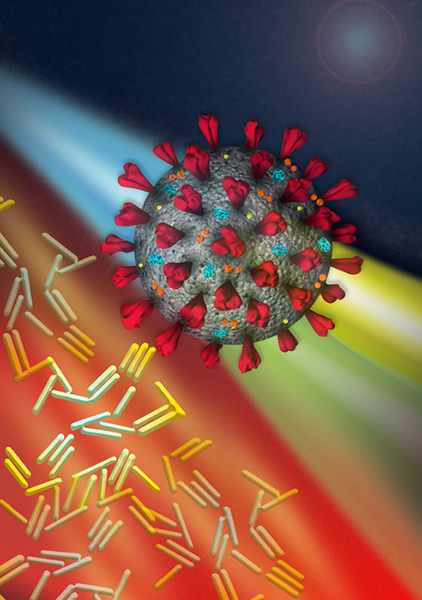Columbia University scientists and collaborators at Rover Diagnostics have created a rapid PCR test that can be used at the point of care. Weighing in at two pounds, the portable device can rival the sensitivity and accuracy of traditional lab-based PCR testing equipment, but providing results in as little as 23 minutes.
The new device includes miniaturized optical components and relies on plasmonic thermocycling. This involves using infrared light to excite plasmonic nanoparticles in the samples, generating gentle heating, and increasing the speed of the process compared with conventional thermocyclers. The researchers are in the process of creating a commercial product based on their research, with an initial focus on detecting COVID-19.
PCR is the gold standard in molecular diagnostics, but presently the assay demands large and bulky lab equipment, plenty of time, and highly trained staff. During the COVID-19 pandemic, this was a sticking point in delivering COVID-19 test results for millions of people with suspected infections. Developing new PCR technologies that reduce these complications is an active area of research, and this latest device provides a rapid point of care PCR testing that is relatively easy to perform.
“Our aim was to create a platform that can be used in locations where rapid turnaround results are critical, at pharmacies, transportation hubs, public events, and at companies screening employees coming back to work,” said Sam Sia, a researcher involved in the study.
The new PCR device weighs approximately 2 kilograms (4.5 pounds) and can provide results in as little as 23 minutes. The secret behind these blistering speeds is the method used for thermocycling. Successive cycles of heating is a key part of the PCR process, and in traditional equipment this is achieved using Peltier technology, where the plastic vials containing the PCR samples are inserted into a metal heating block that applies heat to the outside of each vial.

In this latest technology, the researchers employed plasmonic thermocycling which involves generating heat within the samples themselves. This is achieved by adding metallic plasmonic nanoparticles to each sample, and then using an infrared light to excite the nanoparticles and generate heat. This gentle heat source produces rapid thermocycling, greatly reducing the time required to deliver a result.
“This should really move the needle on delivering rapid and accurate molecular clinical diagnostics in decentralized settings,” said Mark Fasciano, Rover Diagnostics CEO. “Thermal cycling, so critical to DNA and RNA testing, can now be sped up and clinicians and patients alike won’t have to wait so long for results.”
Study in journal Nature Nanotechnology: Multiplexed reverse-transcriptase quantitative PCR using plasmonic nanoparticles for point-of-care COVID-19 diagnosis
Via: Columbia University
